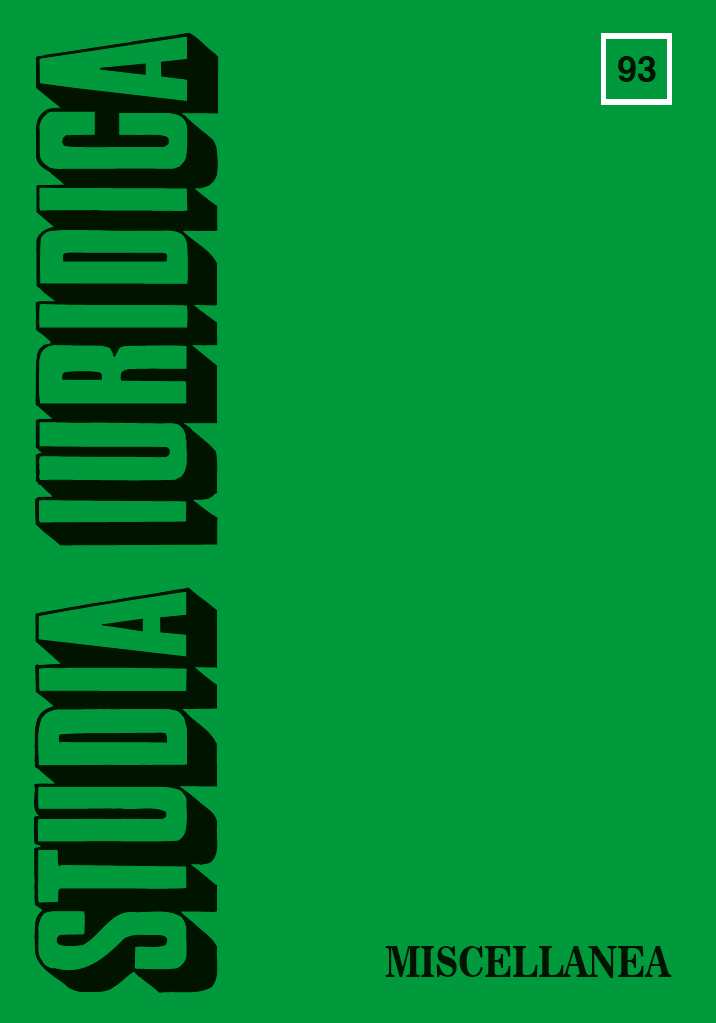MIĘDZY PREWENCYJNYM A BEZPRAWNYM POZBAWIENIEM WOLNOŚCI − UWAGI NA TLE INSTYTUCJI KWARANTANNY
BETWEEN PREVENTIVE AND UNLAWFUL DEPRIVATION OF LIBERTY − COMMENTS ON THE INSTITUTION OF QUARANTINE
Author(s): Przemysław WasylikSubject(s): Law, Constitution, Jurisprudence, Criminal Law
Published by: Wydawnictwa Uniwersytetu Warszawskiego
Keywords: quarantine; criminal liability; preventive deprivation of liberty; unlawful deprivation of liberty; exclusive validity of a law; constitutional guarantees
Summary/Abstract: This article attempts to provide a partial examination of the title issue in the Polish legal order from the point of view of criminal law. The basic thesis of the article boils down to the statement that the criminal law limits of admissibility of the application of quarantine in Poland, during the Covid-19 pandemic, contradicted, inter alia, article 5(1)(e) of the ECHR, but also violated the accepted order of hierarchy of Polish legal acts as referred to in the Constitution and the rules of correct legislation. In order to demonstrate such a statement, the manner and conditions and the possibility of applying this type of measure of medical coercion, as well as the sanctions for its violation, were taken into account. Attention was paid to selected consequences resulting from this classification. In addition, a survey of the case law of the common courts, administrative courts, the Supreme Court and the Supreme Administrative Court on the violation of quarantine was carried out. It has been assumed that the court’s imputation of a criminal act the elements of which are defined by a blanket provision of the criminal act and supplementary provisions of other normative acts, requires: 1) verifying the admissibility of regulating a specific matter with regulations of a sub-statutory rank; 2) examining the compliance with the Constitution of the content of such regulations are in line with the blanket regulation, and 3) observing the scope of the authorization to issue them, placed in the law. The aforementioned matters must be regulated directly in the law, which will ensure that the standards resulting from the Constitution are met, and their enforcement should be carried out by sanitary authorities or courts. The view was expressed that in criminal procedure, preventive measures should be aimed at the prevention of crimes and not at every unlawful act. It was stressed that the public authorities should take responsibility for every unlawful violation of constitutionally protected rights. It was argued that the size of any administrative fines imposed for non-compliance with the quarantine obligation should be proportionate to the financial capacity of the majority of citizens, in accordance with the directives that follow from administrative law. Finally, a critical assessment was made of the legality of imposing quarantine in the context of international treaty obligations for the protection of human rights.
Journal: Studia Iuridica
- Issue Year: 2022
- Issue No: 93
- Page Range: 257-284
- Page Count: 28
- Language: Polish

